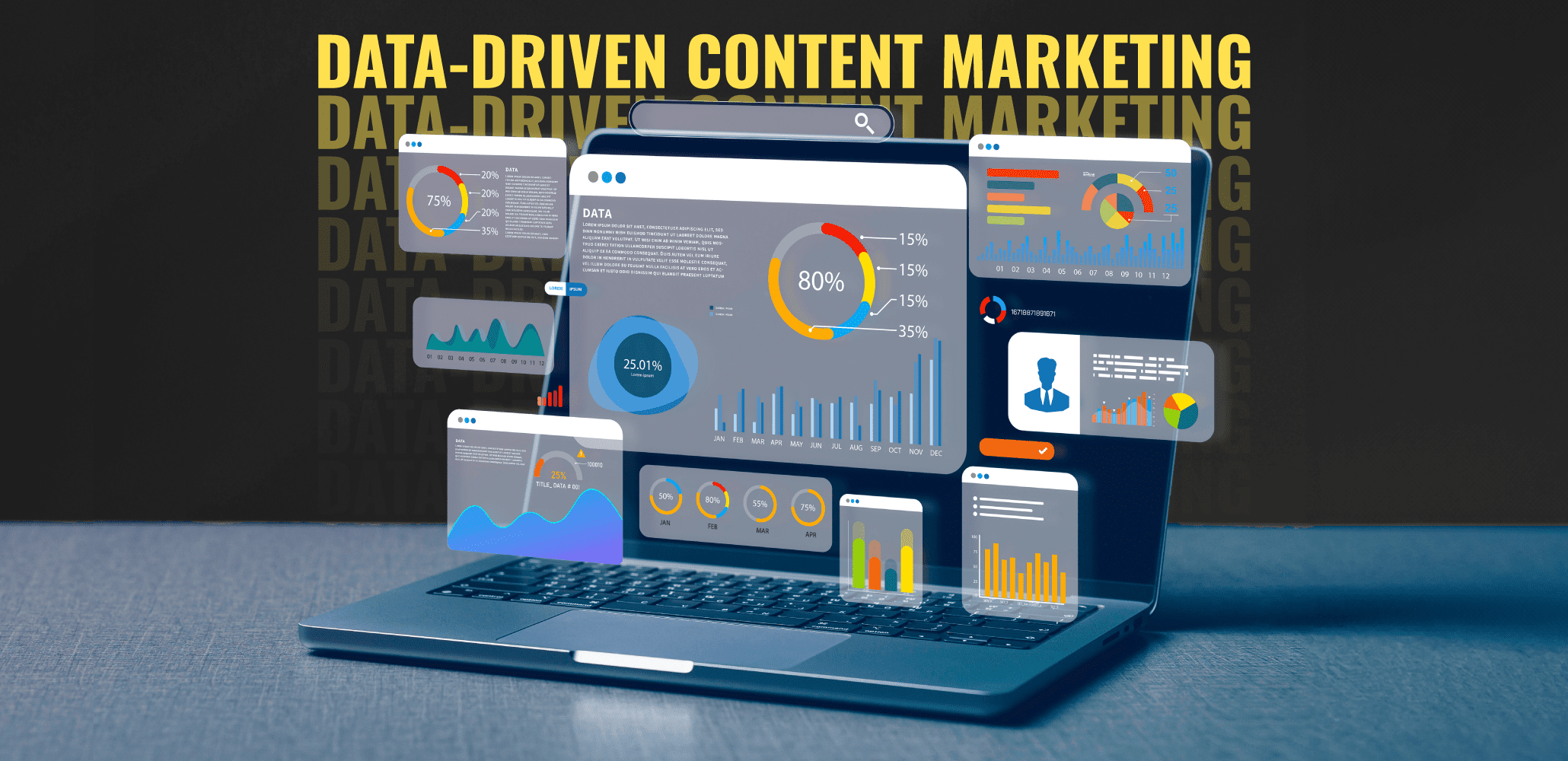In the era of digitalization and technology development, content marketing is becoming an integral part of the strategy of a successful business. However, to attract and keep the attention of the audience, it is necessary not only to create quality content but also to properly analyze the data to determine what works and what does not. This is where data-driven content marketing comes into play – a strategy based on analyzing data and using this knowledge to create more effective content and marketing campaigns.
What is data-driven content marketing?
Data-driven marketing is an approach that allows marketers to make decisions based on data on the behavior and preferences of their target audience. By analyzing such data, it is possible to understand which content is most attractive to the audience, which topics are of greatest interest, and also to determine the optimal channels of content distribution.
“Data-driven approach in marketing allows companies to create more personalized and relevant content, which increases the probability of attracting and retaining customers.â€
Data-driven content marketing  also helps to optimize the distribution of resources, since companies can focus on those channels and types of content that are most effective for their audience.
It is important to note that Data-driven content marketing not only helps to attract new clients but also improves interaction with the existing audience. Understanding and taking into account the preferences and needs of customers allows you to create content that arouses interest and involvement, which, in turn, contributes to increased conversion and customer retention.
The data-driven approach in marketing is a key element in modern marketing, which allows companies not only to attract the attention of the audience but also to achieve higher results from their marketing efforts. By analyzing data and using this knowledge to optimize content and distribution strategies, companies can increase the effectiveness of their marketing and achieve greater success in their business.
Content Marketing for businesses!
Content marketing for businesses is a strategy of attracting and retaining customers by creating and distributing valuable, informative, and attractive content. This content may include articles, blogs, videos, podcasts, infographics, and more. The main goal of content marketing is to establish relationships with clients based on trust and value you offer them, and not merely to sell products or services.
Marketing based on data is not just a buzzword or a new trend. Data-driven marketing is a marketing approach based on the collection, analysis, and use of consumer behavior data.Â
Unlike traditional methods that can be based on intuition or experience, Data-driven marketing uses facts and figures to make decisions. This is a strategy that helps companies get real results and achieve greater success in the modern business world. A data-driven marketing approach allows companies to determine exactly which marketing strategies work and which don’t, allowing them to maximize their efforts and achieve better results.
Marketing based on data in 4 steps!Â
Data-driven marketing involves several key steps:
- Data Collection: Modern technologies allow companies to collect a huge amount of information about their customers and their behavior. This includes data about user behavior data on the site, purchasing information, search requests, actions on the site, social media data, like interesting topics and interactions in social networks, and much more. Collecting these data allows companies to get a complete picture of their audience and their needs.
- Data Analysis: Once data has been collected, it must be analyzed to identify trends, preferences, and behavior of the audience.For example, data analysis can show that a certain type of content or a certain marketing channel brings the highest ROI, which allows companies to optimize their marketing efforts and focus on the most promising directions. This allows marketers to create more personalized and relevant content, which, in turn, increases the likelihood of attracting and retaining customers.
- Decision Making: Based on the results of data analysis, decisions are made on what content to create, how to distribute it, and what marketing campaigns to launch.
- Optimization: The Data-driven approach also includes continuous optimization of marketing strategies based on new data and results.
Strategies for business success:
Using Data-driven Content Marketing can lead to several business benefits:
- Audience Insights: Data analysis helps to better understand the needs and preferences of the audience, which allows you to create more relevant content.
- Increased Conversions: Data-driven, personalized content can significantly increase conversions as it is more appealing to the target audience.
- Efficient resource allocation: Data analysis allows you to determine which channels and types of content you should focus on to get the greatest results at the lowest cost.
- Improved Customer Engagement: Understanding customer preferences and needs helps create content that generates more interest and engagement.
As a result, companies that successfully implement Data-driven content marketing have a significant advantage in the market and are better able to adapt to the changing needs of their audience.
Conclusion
Data-driven content marketing is a powerful tool for achieving success in modern business. By analyzing data and using this knowledge to create personalized and relevant content, companies can attract and retain audience attention, increase conversions, and improve customer engagement. Adopting a data-driven marketing approach requires investment in data collection and analysis, but it can significantly improve the effectiveness of marketing efforts and generate higher ROI. This approach allows not only to attract new customers but also to retain existing ones, which is an important factor for business growth in today’s competitive world.
So, to succeed in business through content marketing, you need to understand the importance of using data to make decisions. A data-driven approach allows you to create more effective strategies, analyze results, and continually improve your marketing efforts. Those companies that master this method will have an advantage over their competitors and will be able to achieve long-term success in their business.





